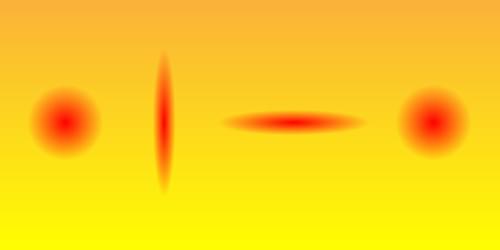A quantum squeezing method can enhance interactions between quantum systems, even in the absence of precise knowledge of the system parameters.
Squeezed states are an important class of nonclassical states, where quantum fluctuations can be reduced in one property of a system, such as position. However, at the same time, according to the Heisenberg uncertainty principle, quantum fluctuations increase in the conjugate property, in this case momentum. The ability to suppress noise in at least one variable is valuable in a wide range of areas in quantum technologies. Now Shaun Burd at the National Institute of Standards and Technology, Colorado, and colleagues have experimentally demonstrated a squeezing-based enhancement method that requires no preknowledge of the system’s parameters [1]. The researchers use a trapped-ion system (Fig. 1) and show that they can amplify the motion of the ion using a combination of squeezing procedures. This experimental research can stimulate other novel applications of squeezing, for example, in dark matter searches.
For decades, quantum squeezing has played a central role in high-precision quantum measurements, such as gravitational-wave detection [2, 3] and nondemolition qubit readout [4– 6]. The methods typically involve applying a field or inserting an optical element that reduces the fluctuations in one observable. The measurements of this squeezed observable can beat the standard quantum limit and thus enable a significant improvement in the detection sensitivity or the readout signal-to-noise ratio.
